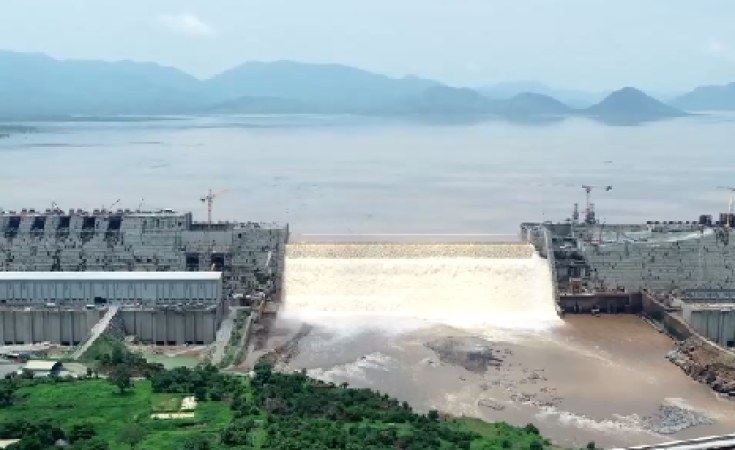Fourth filling of Ethiopia's dam sparks new row with Egypt
Ethiopia and Egypt are once again embroiled in a fierce diplomatic fight before the United Nations Security Council, as letters from both countries' foreign affairs ministers show.
The filling of the fourth stage of the Grand Ethiopian Renaissance Dam (GERD) became the latest flashpoint for a strong exchange of words between the two nations.
Egypt accuses Ethiopia of violating a trilateral agreement, while Ethiopia claims no rules were broken.
The initial letter aimed to address Egypt's concerns to the President of the Security Council. It was authored by Sameh Shoukry, Egypt's Minister of Foreign Affairs, and presented by the country's permanent representative to the UN, Ambassador Osama Abdelkhalek, on September 12, 2023.
- Advertisement -Just two days after Ethiopia announced completing the fourth filling of the dam, Egypt accused Ethiopia of "repeated violations of international law," including the 2015 Declaration of Principles (DoP) Agreement between the three states - Ethiopia, Egypt, and Sudan - regarding the GERD.
In response to Egypt's accusation, a letter from Ethiopia's Deputy Prime Minister and Minister of Foreign Affairs, Demeke Mekonnen, was presented to the Council's president by Ethiopia's permanent representative to the UN, Ambassador Tesfaye Yilma, on September 18, 2023.
Ethiopia stated that the subject matter was "outside of its [the Security Council's] mandate."
This is not the first time the two states have appealed to the Security Council on the issue of GERD. Egypt wrote to the Council at least three times in 2020, three more times in 2021, and once last year. Ethiopia responded to each of these letters.
The Council changes its monthly presidency, rotating it among its 15 member states. The last time Egypt requested interference from the Council president and Ethiopia contested it was in September 2023, when the president was Edi Rama, the Prime Minister of Albania.
In September 2021, the Council president at the time issued a statement encouraging Ethiopia and the two downstream countries to conduct negotiations under the auspices of the African Union and reach an acceptable, binding agreement "within a reasonable timeframe."
In his address to the Council mid-last month, Egypt's Foreign Minister stated that "Ethiopia's continued unilateral practices could pose an existential threat to Egypt and its stability, endangering regional and international peace and security," explaining why they brought the issue to the Council's attention.
Demeke responded, saying that "there is no dispute or situation that would lead to international friction or give rise to a dispute." He emphasized that the issue of the Dam is not on the Council's agenda.
"Ethiopia continues to choose the path of reason and cooperation. [Ethiopia] doesn't have any obligation to seek permission or comply with any claim Egypt proffers with regards to the Nile River," the letter reads, accusing Egypt of hiding behind colonial-era treaties that Ethiopia did not participate in.


